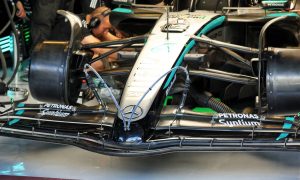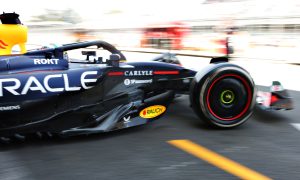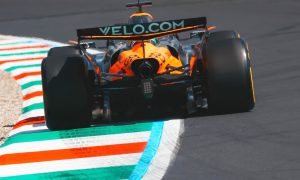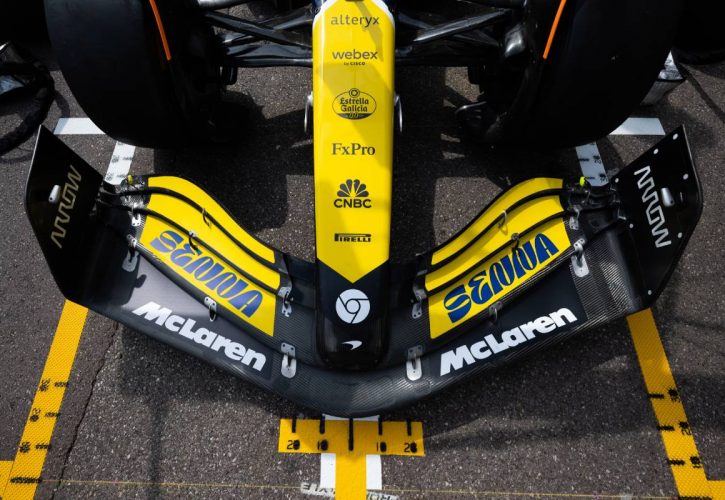
Formula 1 teams have predictably opted for maximum downforce configurations on their cars for this weekend's Monaco Grand Prix.
Unlike high-speed tracks where aerodynamic drag becomes a major concern, the tight and twisty streets of Monte Carlo prioritize downforce for optimal grip and cornering ability.
Ferrari and McLaren have been steadily closing the performance gap on Red Bull's previously dominant RB20. Lando Norris' stunning victory in Miami followed by team papaya’s strong pace in Imola further solidifying this trend.
Red Bull struggles on Friday’s opening day of running in the Principality have opened the door for Ferrari and McLaren to capitalize on their recent momentum and potentially pull off an upset victory.
As a tradition in Monaco, all teams have equipped their cars with special high-downforce rear wings. These generate significantly more downforce compared to standard configurations, sacrificing some straight-line speed but offering a massive advantage on Monaco’s specific track where drag is less of a factor.
Ferrari’s rear wing for Monaco marks the first time this season the Scuderia has specifically targeted increasing rear downforce levels through a wing modification.
The new element builds upon the design introduced at Imola, retaining the semi-detached flap tip and endplate connection. However, it departs from the traditional "spoon-shaped" mainplane seen previously. Instead, Ferrari has opted for a flatter surface, necessitating a sharper transition where it meets the endplate.
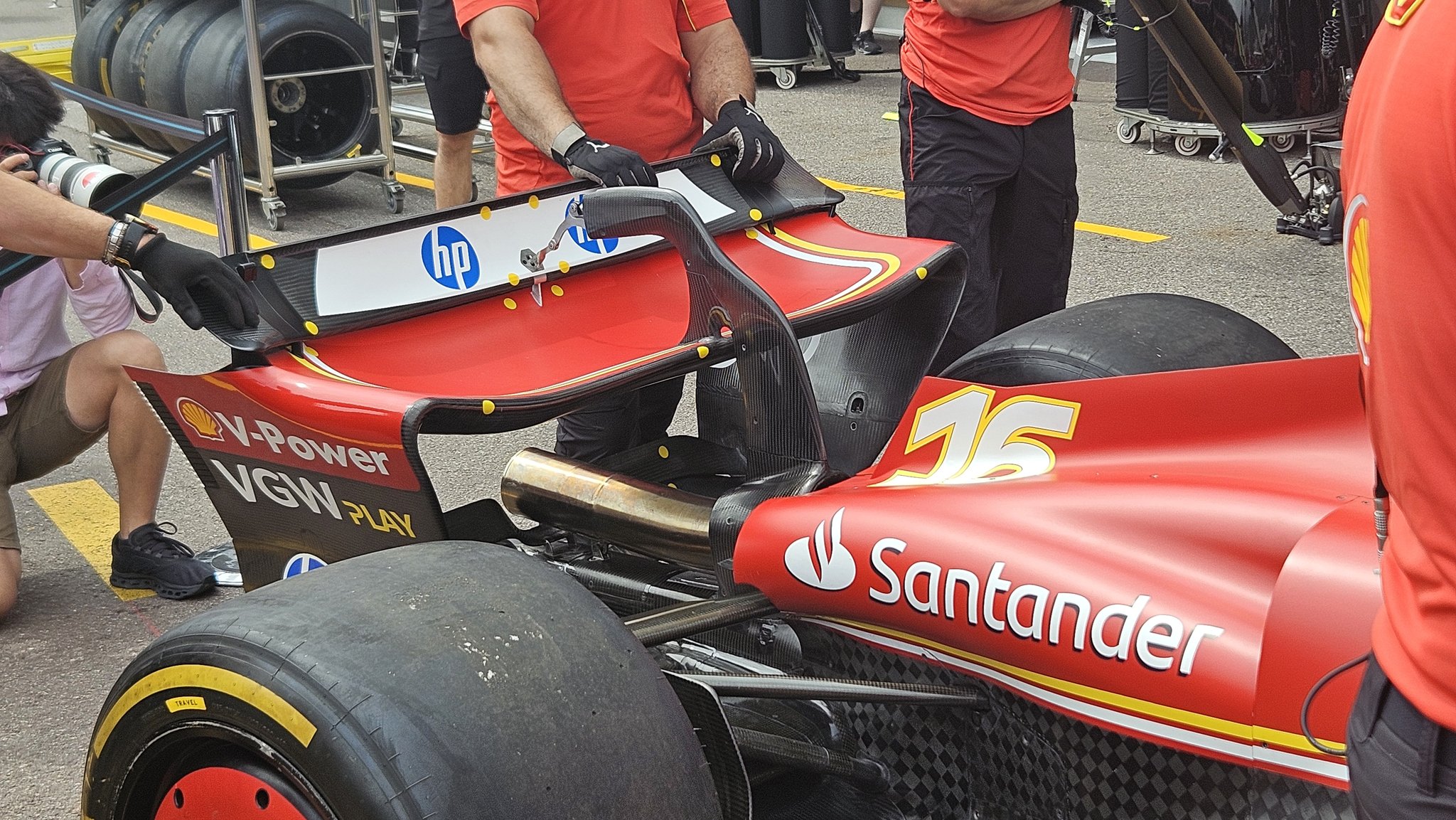
©X/@AlbertFabrega
Interestingly, McLaren’s rear wing assembly in the Principality isn't just a one-off solution for the track’s tight corners, but rather a multi-purpose package designed to be beneficial on other high-downforce circuits throughout the season.
The changes extend beyond just the wing itself. McLaren has also modified the beam wing, a smaller wing positioned lower on the car that interacts with the main rear wing to further manipulate airflow. This optimization of both wings working in tandem is designed to "increase the overall efficiency" of the downforce generation package.
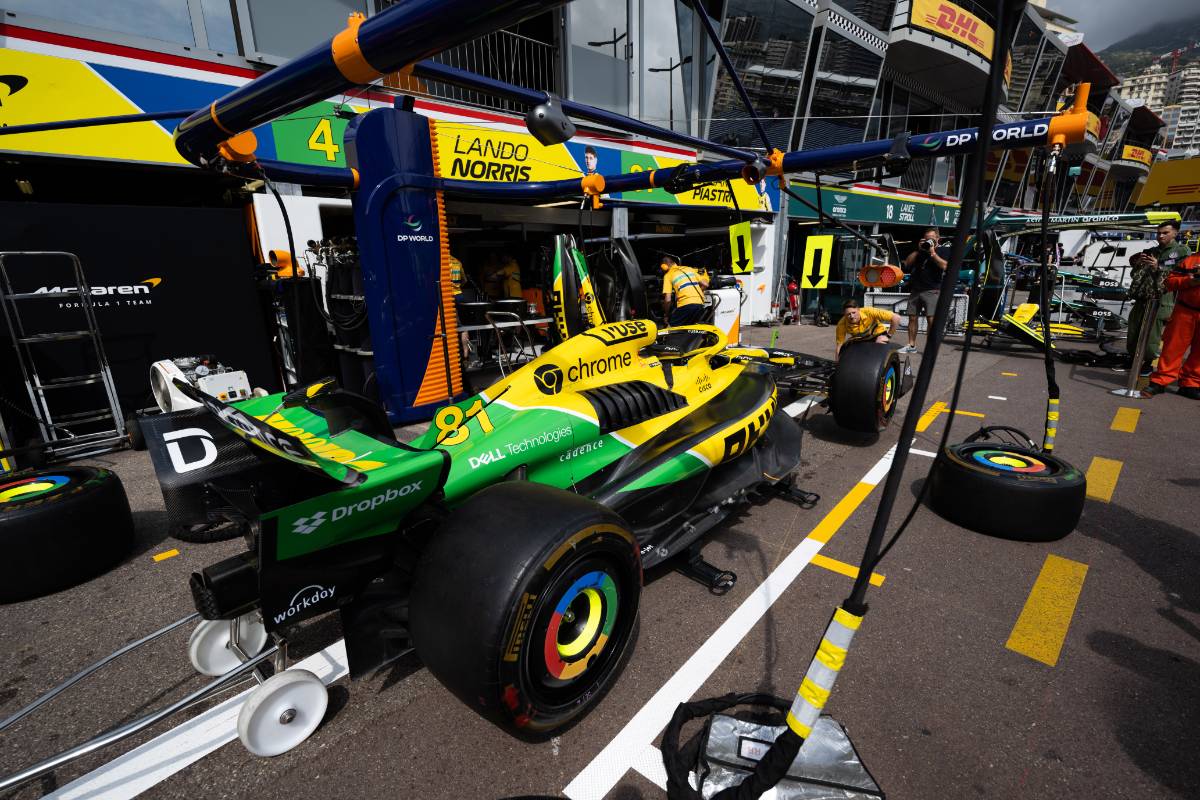
Red Bull have made targeted adjustments to both the RB20’s rear wing and beam wing to enhance aerodynamic performance.
The key change is the focus on "greater chord and camber." Chord refers to the wing's width from front to back, while camber describes the curvature of the wing's profile. By increasing both, Red Bull aims to extract more local aerodynamic load.
In simpler terms, the wing will be more effective at generating downforce specifically around the rear tyres, which is crucial for navigating Monaco's tight corners.
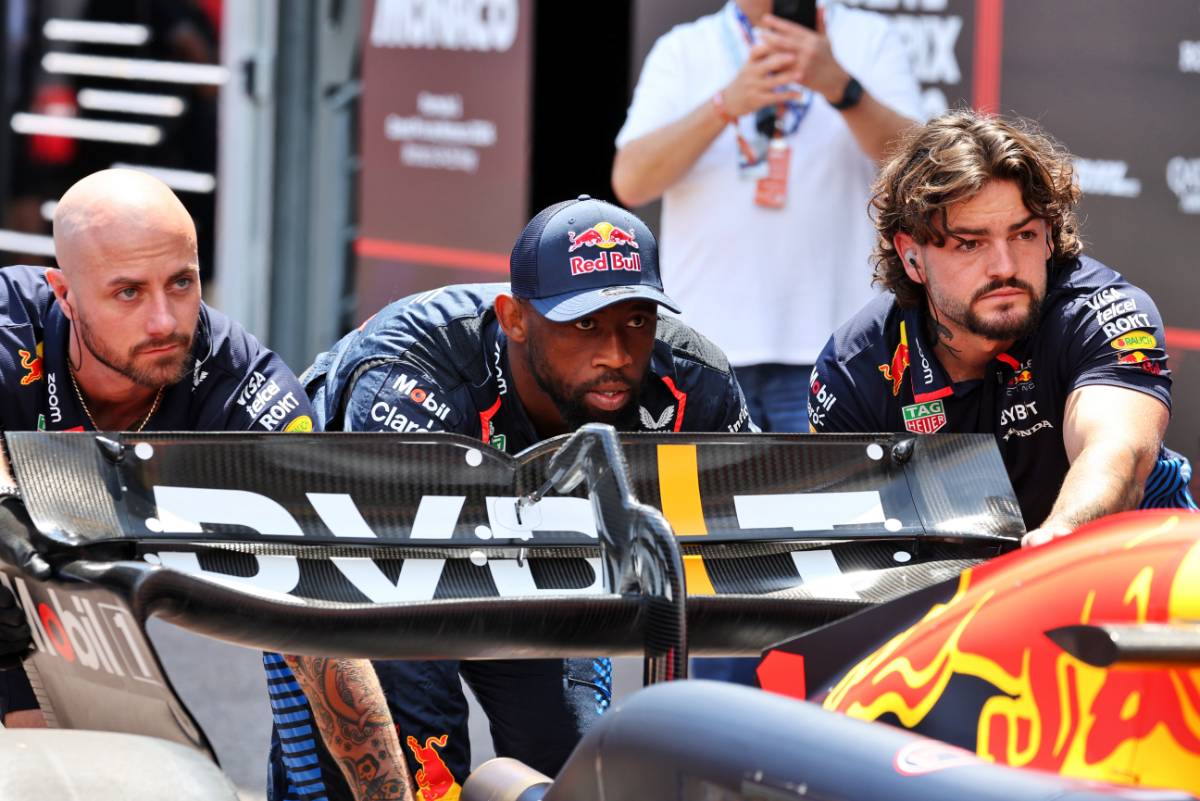
In addition to mounting a circuit-specific rear wing on its W15, Mercedes has taken a more nuanced approach with a completely new front wing for this weekend.
The element’s first function is to generate more local load at the front of the car to improve crucial front-end grip, but a second aspect of the wing is its impact on airflow.
Mercedes has designed the wing to alter the vortex generated at the tip and influence its path towards the rear of the car. This manipulation of the vortex is likely aimed at improving "tyre wake”, or the turbulent airflow shed by the rotating wheels.
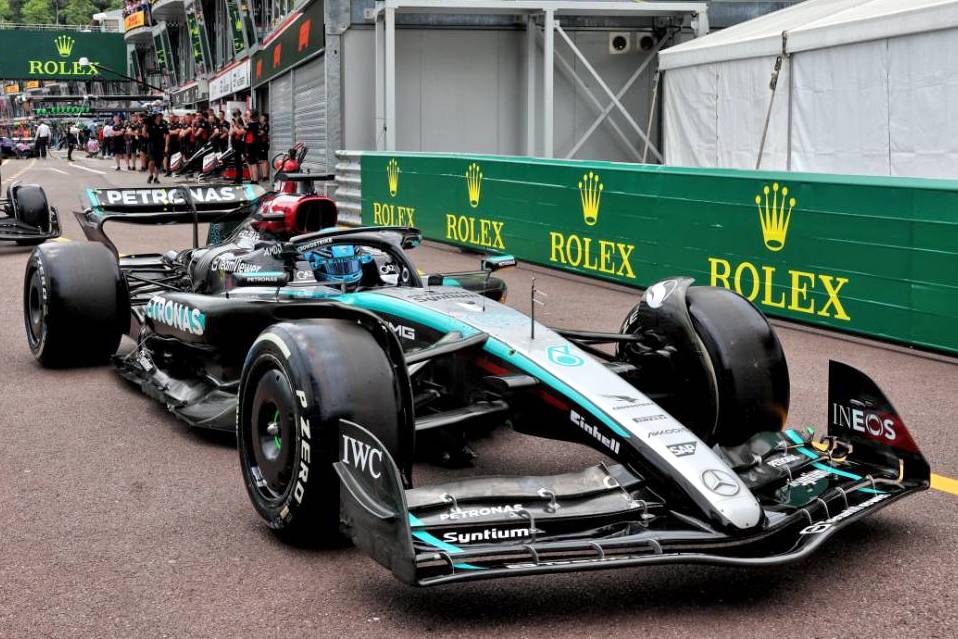
Over at Aston Martin, team Silverstone’s engineers have opted for a pure circuit specific, more aggressive approach with a rear wing that prioritizes raw downforce generation over achieving the most aerodynamically efficient setup.
In simpler terms, the wing might create more drag compared to other teams' designs, but the trade-off is potentially significant downforce gains on Monaco's tight corners.
Alpine, RB, Williams, Haas, and Sauber have all joined the high-downforce party, implementing various rear wing designs to maximize downforce generation.
However, one standout modification is the Halo fairing on Alpine’s A524.
Keep up to date with all the F1 news via Facebook and Twitter




